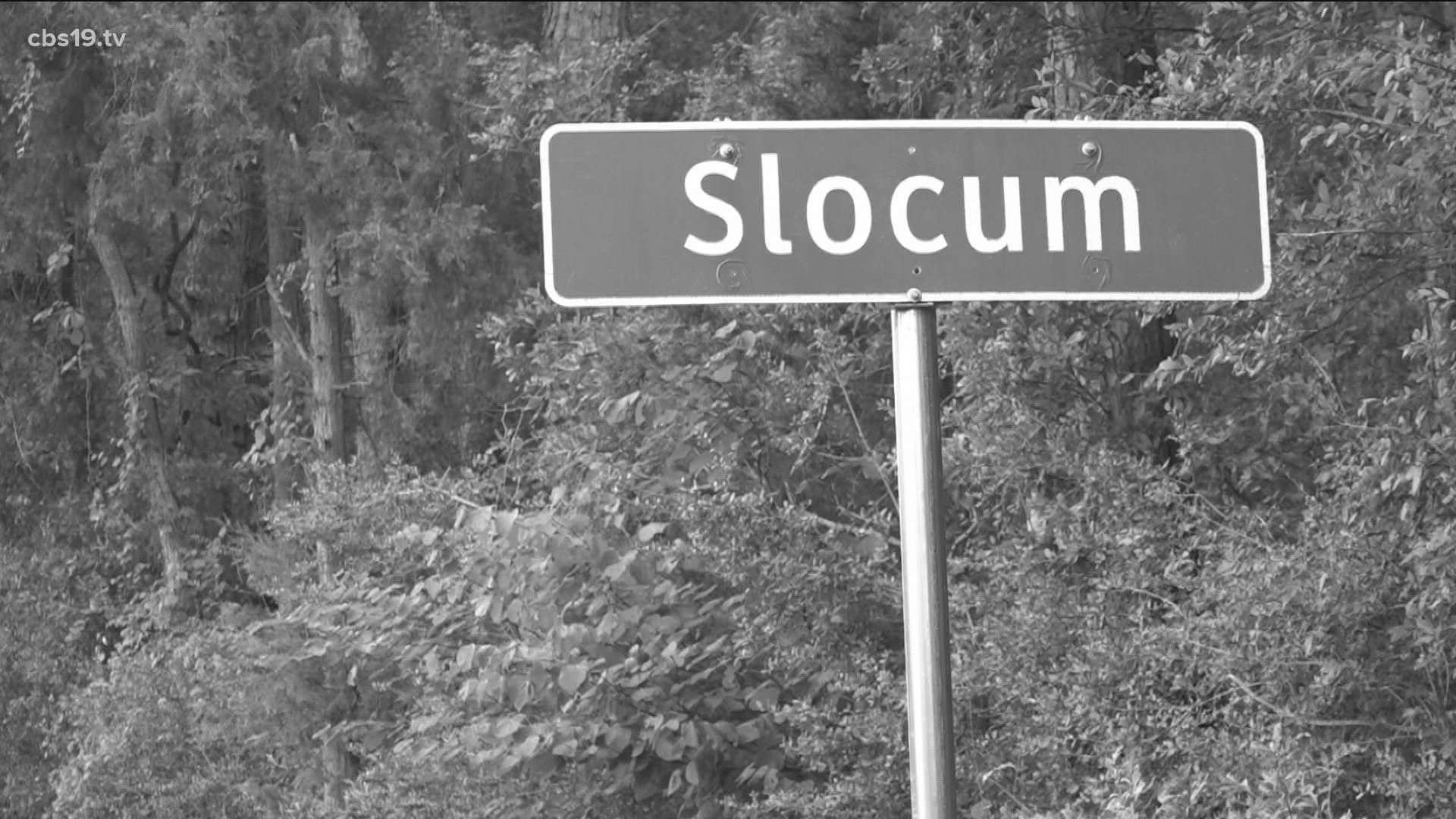ANDERSON COUNTY, Texas — July 29, 2021, marks 111 years since the 1910 massacre of Black citizens in Slocum, Texas.
"Mobs ranging from dozens to hundreds went around killing African Americans on site," E.R. Bills, author of the book 'The 1910 Slocum Massacre: An Act of Genocide in East Texas', said.
It happened over the course of several days, beginning July 29, 1910. The massacre began at Sadler Creek, then the bloodshed moved to Ioni Creek.
"Starting on the 29th and going into the 30th, and then residually into the 31st," Bills said. "Mobs of white folks who cut the phone lines in the area, there were phones, they cut the phone lines, so the blacks [living] there [couldn't] call out for help."
Newspapers from around the region, state and country documented one of the worst days of history in East Texas.
"It was shocking," Bills said. "I didn't know anything like that happened in Texas and just the fact also apparently had been covered up was sort of a shock to me."
There are many incidents that are believed to have led up to the massacre.
A rumor had been spiraling and believed by some that the Black community was planning an uprising against the whites, but that was never proven.
"It was all a lie," Bills said. "But it scared the white people enough that they they took their kids and their their wives and put them in churches and left men outside to defend reportedly and then and then they went on a killing spree."
In the days leading up to the massacre Boxer Jack Johnson, nicknamed the "Galveston Giant, won an integral match becoming the first Black American world heavyweight champion.
"I think the President of Prairie View A&M at the time said he wished Jack Johnson hadn't fought Jim Jeffries, because it created animosity towards Blacks."
"My grandfather was just a really proud man," Constance Hollie-Jawaid, a descendant of one the victim of the Slocum massacre, said. "And he was willing to defy the system. He was told after the Jack Johnson victory not to celebrate, and he celebrated. And then the following weekend, is the Slocum Massacre."
Hollie-Jawaid is the great, great, great granddaughter of Jack Holley, "Papa Jack" as he was called then and still referred to, who was a survivor of the massacre.
In the early 1900s Jack Holley was a successful businessman which was not easy for someone enslaved until they were 19 years old.
"Jack Holley, who was the primary land owner and the owner many other businesses in Slocum at that time," Hollie-Jawaid said. "He started using his skills and his talents to make money for himself instead of the European, you know, structure of chattel slavery. He did that just a bit too well, he owned a general store, a granary, dairy, a printing press, he could read and write, [he] owned 700 acres of prime farmland."
Holley survived the genocide but was forced to flee his home and move to Palestine.
In the massacre he lost a son, cousins and many relatives.
"Having to lose a child, having a child shot and wounded like that, I can't imagine what that feels like," Hollie-Jawaid said. "I have two children. And I don't want to think about that. But it is something that many African parents, African-American parents, Black parents are dealing with today, with their children being killed when they're not even armed. Shot in the back or shot with, with no, not even being aggressive, you know, innocently shot. So, 1910 to 2021, 111 years later the same things are happening to us as parents losing kids."
The official death count stated on the marker, recognized by the state, is listed as eight, although it's believed 200-300 Black citizens were killed in the massacre.
Hollie-Jawaid and Bills were instrumental in requesting and getting a historical marker of the massacre in Anderson County.
The makers sits along a long road, FM 2022, in Slocum.
On every July 29, Hollie-Jawaid along with many others get together to remember the victims who died because of the color of their skin.
"From the Slocum Massacre I would like everyone to know the importance of remembering, regardless of what others around you tell you to do, and if people forget their history they are destined to repeat it. And we don't want that. We don't want that."
Hollie-Jawaid and Bills have researched and believed to have found mass gravesites indicating where victims may have been buried in the days following the massacre.
"Reaching out to our governor for the past several years, to ask for help with the recovery of these bodies that are piled on top of each other like animals, has yielded no response," Hollie-Jawaid said.
Hollie-Jawaid says although her cries for the recovery of the bodies of the victims have gone silent from lawmakers she will continue to push for justice for the victims who many may have forgotten.
"Oklahoma and Florida both encountered massacres, on the same scale, are much more progressive than Texas," she said. "Florida with the Rosewood Massacre, those descendants have access to college and public universities, same thing in Tulsa [Tulsa Massacre] with the recovery and recognition. Texas is so insensitive to the needs of its own citizenry, that it just ignores it, and I guess hope that it goes away. So, it's sad when you can say states as red as Oklahoma and Florida are more progressive. I guess we're just a brighter shade of red, which is so sad."

